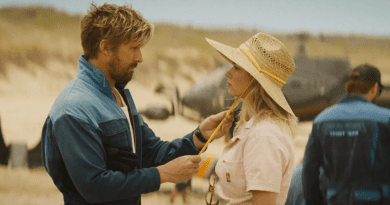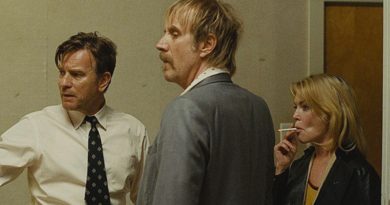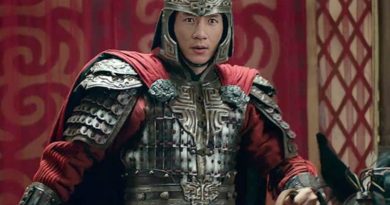Uprising 전,란 (2024) Review: Park Chan-Wook-Produced Historical Drama Features Well-Staged Sword Fighting But Uneven Storytelling
The first thing about Uprising that interests me the most is the involvement of Park Chan-Wook. Yes, that Park Chan-Wook, who served as the co-writer and producer of this historical war-action movie. Set during the Joseon era, the story focuses on the unlikely friendship between Cheon-Yeong (Gang Dong-Won) and Jong-Ryeo (Park Jeong-Min). The former turns out to be a slave who has been serving his master, Jong-Ryeo since childhood. Part of his job includes getting whipped each time Jong-Ryeo, who is the son of a deputy minister, doesn’t perform well on his sword training. Think of Cheon-Yeong as a body double for Jong-Ryeo and you will get the idea.
But after suffering from constant whippings, Cheon-Yeong finally steps up by starting to teach Jong-Ryeo how to fight using the sword efficiently. This is where their eventual friendship begins and as Jong-Ryeo improves better in his sword training, Cheon-Yeong subsequently earns his place as his instructor. They remain best friends after reaching adulthood. So far, so good as I enjoy the story angle revolving around Cheon-Yeong and Jong-Ryeo’s friendship, despite their vastly different social class and identity.
Then comes the betrayal, which is the result of a huge misunderstanding after the angry Jong-Ryeo blames him for the death of his wife and son. I’m expecting more conflict from here on and how rage consumes Jong-Ryeo inside out to the point it blinds him from the truth. But Park Chan-Wook’s screenplay tries to spread out beyond the confines of Cheon-Yeong and Jong-Ryeo’s relationship from friends to enemies. The story also includes King Seonjo (Cha Seung-Won), the selfish and greedy ruler of Joseon who only cares about his own benefit rather than taking care of his people.
Long story short, there’s a subsequent Japanese invasion took place led by the ruthless frontline commander, Genshin Kikkawa (Jung Sung-Il). Then, there’s the slave rebellion longing for freedom. Personally, I don’t mind if the story wants to branch out in multiple directions but the thing is, Park Chan-Wook isn’t the one who called the shots.
Instead, the director in charge of Uprising is Kim Sang-Man, who used to serve as an art director for Park Chan-Wook’s Joint Security Area and as part of the crew members for I’m a Cyborg, But That’s OK and Lady Vengeance a.k.a. Sympathy for Lady Vengeance. As a director, I enjoyed his work in Midnight FM, one of the best South Korean thrillers ever made in the 2010s.
In Uprising, he does a good job in the technical department including the impressive production and costume designs that captured the Joseon era. The action, particularly the intricate sword fights is thrillingly choreographed with enough style and verve. Credits also go to Man’s dynamic camerawork with the help of Ju Sung-Lim’s elegantly composed cinematography while Alan Tyler and Jo Yeong-Wook’s rousing score helps heighten the tension. Interestingly enough, the music composition has a distinctly modern feel of propulsive rock beats in some scenes, which surprisingly works well without sounding awkwardly out of place.
How I wish I could say the same thing for the sprawling storyline, which is frequently hindered by erratic pacing and even lacking strong focus. It made me feel as if it’s too much for Kim Sang-Man to strike a fine balance in juggling and hold every plot thread together into a coherent whole. This, in turn, causes the potentially strong character arcs surrounding Cheon-Yeong and Jong-Ryeo’s respective journeys to fall short of their intended marks. Since the story is written by Park Chan-Wook, fans of his works can detect some of his trademark nihilism (the unexpected fate of Jong-Ryeo’s wife and son) and occasional pitch-black humour revolving around Genshin Kikkawa’s dutiful translator at one point in the movie.
By the time they inevitably square off against each other with Genshin Kikkawa caught in the middle, the payoff may feature some well-choreographed and unapologetically violent sword fights on the fog-shrouded beach. But what’s missing here is the much-needed emotional and dramatic tension to justify everything that happens after spending a little over two hours of streaming. Overall, Uprising remains a decent watch but for a movie that has the notable credibility of Park Chan-Wook’s involvement, I was hoping for a better result.
Uprising is currently streaming on Netflix.





